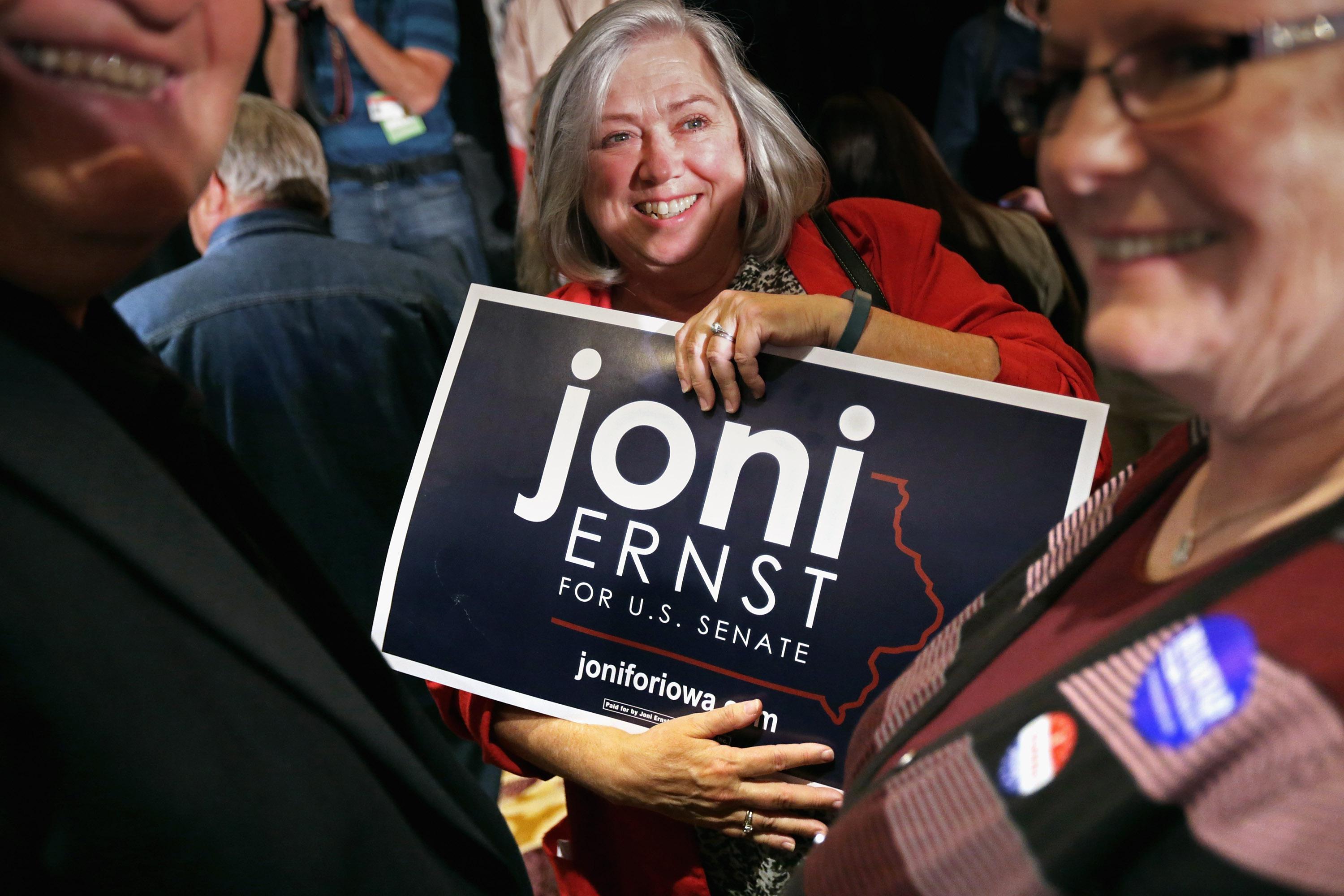A headline on the Cut announces that the midterm election results were “Bad News for Women.” Under it, Ann Friedman argues that even though there were several “prominent victories” for Republican women this week—including combat veteran and hog castrator Joni Ernst in Iowa, black Mormon Mia Love in Utah, and youngest woman to ever be elected to Congress Elise Stefanik in New York—because they do not support abortion rights and are pro-gun, that means their wins are not a boon for women.
I’m not sure I agree. If you are against everything Joni Ernst or Mia Love stand for, then this election was bad for you, and the policies you care about, not bad for women. It should be obvious, but “women”—half the population—are not a uniform voting block with uniform ideas about what is best for them. Though Friedman claims that Ernst was “a woman candidate whom most women voted against,” NBC’s Iowa exit poll shows that’s just not the case: Ernst and her opponent Bruce Braley split the female vote evenly, 49 to 49 percent. Though I personally find Ernst’s far right views terrifying (she believes in fetal personhood and wants to abolish the EPA and the Department of Education), “women” in Iowa do not agree with me, and she’s their representative, not mine.
It’s not just candidates that women disagree on. It’s the issues themselves. Let’s take access to abortion, which is seen as a pivotal “women’s issue.” According to the Washington Post, polling over the years has shown that there’s actually not that much difference between men and women’s views on abortion. And women may be more supportive of restrictions on late-term abortions than men are. Particularly in this election, issues like the economy and security have outweighed social issues among all voters.
Which is to say, though the right to choose is incredibly important to people like me and Ann Friedman, it’s not as important to a good portion of the female electorate. And even women who do care deeply about reproductive rights don’t necessarily like being treated as one-issue voters. Two anecdotal examples: After the election, a woman I think of as a deeply feminist Colorado resident—she has devoted her life to fighting sexual assault—posted on Facebook that she was glad to see Democratic Sen. Mark Udall lose his race. “The ads angered me,” she wrote of Udall’s TV commercials like “Backwards,” which focused on women’s access to abortion and contraception. “As a woman, all I care about is my private parts? I have nothing else on my mind, like, I don’t know, everything else?” Another woman who voted against Udall, who is a self-declared feminist and fan of Gloria Steinem, told CNN, “I want grandkids. I want security. I don’t want to worry about paying the bills…[Udall is] pandering on the choice issue, trying to scare women. I don’t scare anymore. I’m beyond that.”
One thing that is “bad news for women” is their paltry numbers in politics. The New York Times has a tally, and at most there will be 21 women in the Senate, 85 women in congress, and 5 women governors in 2015—those are record numbers in Congress, and they still stink. If we want more women in elected office, and we should, then we need to encourage all women of all political stripes to run. As political scientist Danny Hayes points out in the Washington Post, the biggest barrier to having more women in politics is that they don’t run in the first place. Maybe seeing a black first generation American like Mia Love get elected to congress in lily-white Utah will inspire some younger women to run in places where they might assume the electorate is stacked against them. That kind of diversity is good for everyone.
